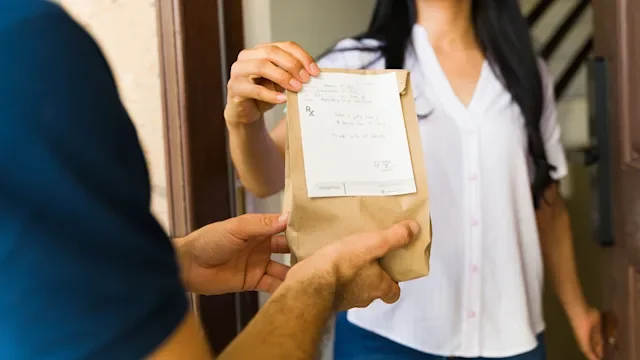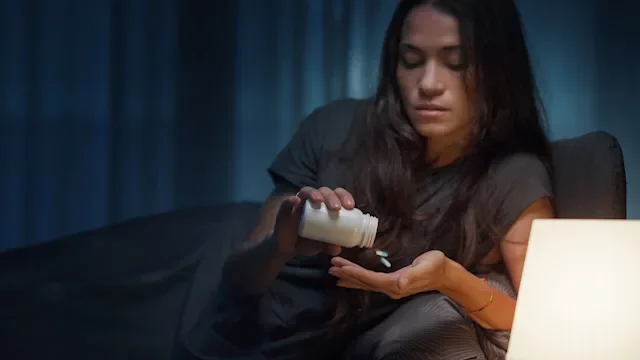Key takeaways:
Using a pill organizer can help you avoid having to keep track of multiple medication bottles every day. It can also help you take your medications as prescribed.
There are many different types of pill organizers to choose from. Some allow for multi-dose medications, and others have special features, such as easy-open “pop-up” buttons.
Choosing the right organizer for yourself depends on several factors. This can include how many medications you take and how often you take them.
Today, many people take multiple medications to manage their health conditions. And with each medication that’s prescribed comes a certain level of responsibility. This includes knowing how and when to take it. But for many people, this can become overwhelming.
That’s where pill organizers can help. But deciding which is best for you may be challenging to figure out on your own. Here, we’ll review a few of the different types to choose from, including features that set them apart, to help you make your decision.
What are the different types of pill organizers?
There are many different types of pill organizers available. Some examples include weekly organizers, multi-dose organizers, and special feature organizers. Below, we break down what you should know about each type.
Search and compare options
Weekly pill organizers
Weekly pill organizers are commonly used to organize medications. These types of organizers are often used when you take your medications once a day, all at the same time.
Each day has its own labeled box where you place your medications. When using this type of organizer, make sure that the correct medications are in the appropriate box for the correct day. Weekly pill organizers should be refilled at the beginning of the week to avoid missing doses.
Multi-dose organizers
Multi-dose organizers are often used when you have to take medications multiple times a day. Like the weekly organizer, this type also has boxes labeled for each day of the week. The difference here is that each day can have multiple boxes for different times of day.
Multi-dose organizers are often divided into two to four boxes per day. Which one you’ll need depends on how many times a day you take your medications. For example, if you take your medications at breakfast and dinner, you may only need one with two boxes per day.
Easy-open organizers
Easy-open organizers are an example of a special feature organizer. They can be a good fit for people with arthritis or difficulties with hand movement.
This type of organizer can look exactly like weekly or multi-dose organizers. But they include “pop-up” buttons that you push on each box. This can make the opening process easier.
PIN-controlled dispensers
PIN-controlled pill dispensers are also available. This type of dispenser is just a pill organizer that has a PIN-controlled lock. It must be unlocked in order to access your medication.
PIN-controlled dispensers can be a good option for caregivers to use when caring for people with memory problems (e.g., Alzheimer’s disease and dementia). This way their medications can be kept in a safe place until they’re ready to be given.
They can also be useful if you’re taking controlled substances. These are medications that have a risk of dependency and misuse. PIN-controlled dispensers can help prevent others from accessing these medications.
Automatic pill dispensers
Automatic pill dispensers are a unique option for organizing your pills. They can be a good choice for people who have difficulty remembering to take their medications on a regular basis. Some can be filled with up to 28 days worth of medication. Newer versions may be able to hold even more.
To use an automatic pill dispenser, you’ll need to enter your medication information. This allows it to dispense the right medication at the right time. You’ll be notified by a blinking light and audio alarm when it’s time to take your pills. And they’ll be dispensed from the system after you push a button.
Some automatic pill dispensers are linked to an app for reminders, missed dose notifications, and tracking how well you’re sticking with your medication regimen.
This type of dispenser can be one of the more expensive ways to organize your medications. But for some, it may be worth it.
What factors should you consider when picking a pill organizer?
Maybe you’re on the fence about whether you should get a pill organizer. But if you’re feeling overwhelmed by the amount of medications you take, this might be the right time to get one.
When picking the best pill organizer, it’s important to ask yourself some questions. This can help you think about which organizer type and special features you may need.
Examples of these questions include:
Do you take medications multiple times a day? If so, multi-dose organizers would be a great option. This allows you to organize the medications you take up to 4 times a day.
Do you have problems with remembering to take your medications? There are organizers that have built-in alarm and reminder features.
Are you able to open your medications without struggle? If not, there are options like easy-open organizers or automatic pill dispensers that might make it easier.
What are the biggest mistakes people make when organizing their pills?
Medication organization is a positive step towards improving your health. And getting completely organized is a process that takes time to develop. But there are a few common mistakes that people make along this process. Below are a few examples of things that you’ll want to avoid.
Forgetting to refill your pillbox at the beginning of the week. Set an alarm once a week to remind yourself to refill your pillbox. Make it the same day and time to help establish a routine.
Forgetting to take your medication on time. Some people still forget to take their medications, even when they’re organized. Set alarms at the same time each day as a reminder or look for organizers with reminder features. There are also a number of medication reminder apps you can download.
Mixing up your medications or organizing them incorrectly. One of the most important parts of using a pill organizer is filing it correctly. If you’re having difficulty, ask a trusted friend, family member, or pharmacist for help. Some pharmacies offer bubble packing services. They’ll organize your medications for you into bubble packs that you can “punch out” each time you need to take medicine.
The bottom line
Medication organization plays a huge part in improving your health. That’s because it can help you stay on top of your medication regimen.
There are many different ways to organize your medications. It’s important to first ask yourself some questions about your comfort level with your medications. This can help determine if you could benefit from a pill organizer and which type is right for you.
If you’re still struggling to find a way to organize your medications to meet your needs, talk with your pharmacist to find a helpful solution.

Why trust our experts?



References
Vorvick, L. (2020). Keeping your medicines organized. MedlinePlus.












